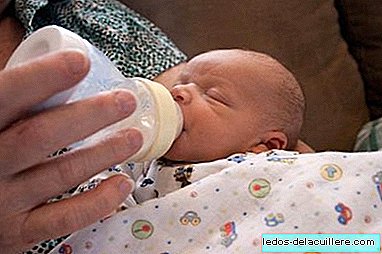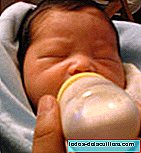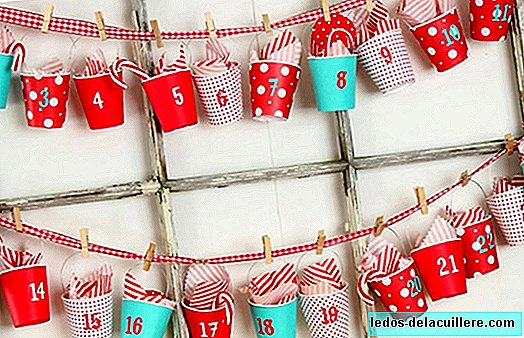
Many parents who start feeding their baby with artificial milk they wonder which one is better. The truth is that they are all very similar (although not equal) and it is difficult to conclude which of them is better.
As a nurse I receive visits from artificial milk manufacturers, explaining to me how good the milk they make is compared to the others. Curiously (or not so curiously), everyone explains that theirs is good and they show it to you with studies.
The conclusion I draw personally is that some have beneficial characteristics that others do not have and vice versa. This makes an old "give it all" recommendation, still valid today. Although it is true that there is already some comparative analysis that could help you position yourself.
The OCU studied them recently
The OCU (Organization of Consumers and Users) published in December 2009 an analysis comparing several brands of artificial milk scoring 20 parameters of them, which were included in five subgroups: labeling, preparation, nutritional, renal load and hygiene.
The formulas were organized, from best to worst, as follows: Enfalac Premium 1 (83/100), Nativa 1 (80/100), Nidina 1 Premium (80/100), Milupa Aptamil 1 (78/100), Novalac 1 (78/100), Nutriben Natal (78/100), Similac 1 (76/100), Hero Baby Home 1 (76/100), Puleva Peques 1 (74/100), Nitricia Almirón 1 with Immunofortis (73/100), Blemil Plus 1 Forte (73/100), Adapts More 1 ( 73/100) and Sanutri Natur 1 (69/100).
Are those with DHA better?
DHA is a polyunsaturated fatty acid that has proven to be important for babies' brain development, which is present in breast milk (among other nutrients).
From a time to this part many formulas for infants, if not all, have added it in their composition And that has served as a banner to show your product as better than others. In fact, as I say, many visitors insist that their milks carry DHA and ARA (another important fatty acid) and that is why professionals should recommend them.

However there are studies (and among them a Cochrane review), which conclude that the inclusion of DHA in infant formulas does not provide any benefit in babies. This does not mean that DHA is not good, but it is probably not the same as that found in breast milk. That which is included in the artificial formulas is extracted from fermented microalgae while that of breast milk is obviously formed in the mammary gland.
Therefore, for the moment, the inclusion of DHA in artificial milks does not provide any benefit and serves as a sign that supplementing artificial milk with breast milk substances is not a guaranteed success, since not all substances in the Breast milk can be obtained in a laboratory and not always when they get they offer the same effect.
How long should they start artificial milk?
The milks analyzed by the OCU are all “type 1” or start calls. The usual recommendations for babies who drink artificial milk (if we pay attention to labels) are: starter milk “1” until six months, continuation milk “2” until twelve months and growth milk “3” from of the 12 months.
From these recommendations there are many others, which do not have to be wrong or be better than the previous one. I am going to offer my vision and then let everyone do what they consider best.
Since start-up milk is the formula for babies that most closely resembles breast milk (bearing in mind that it still looks very little good) and considering that babies who drink breast milk are recommended to drink it for at least two years, I would give starter artificial milk, or type "1" until 18 months, at which time I would alternate with cow's milk until the second replaced the first.
As a variant to this recommendation, starter milk could be said up to 12 months and from that moment start offering cow's milk or continuation milk. If you opt for the second, give it up to 18 months and then go to cow's milk.
Growth milks do not seem useful to me, because they are cow's milk with added nutrients that are already found in other foods and I would not use them.












